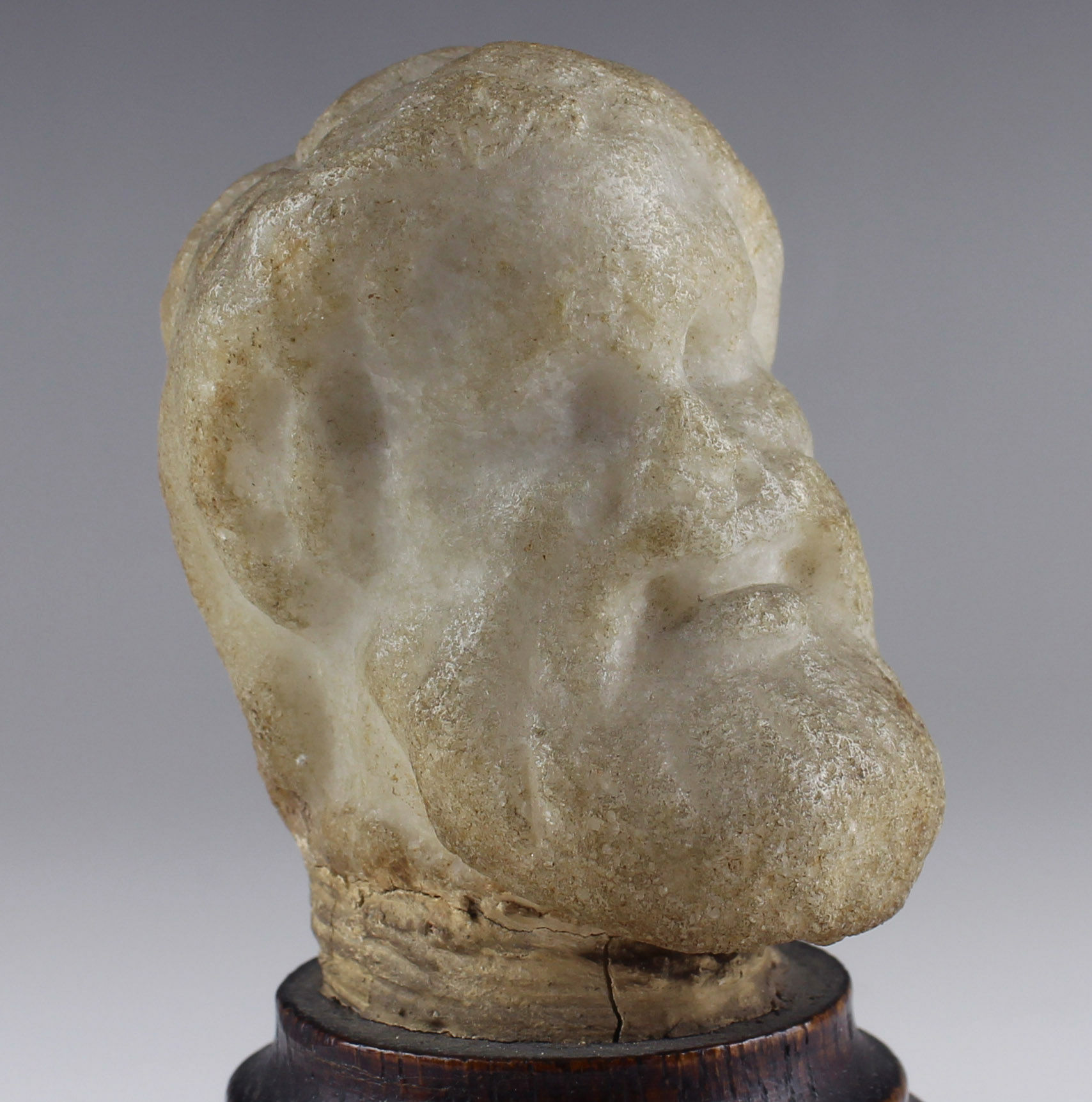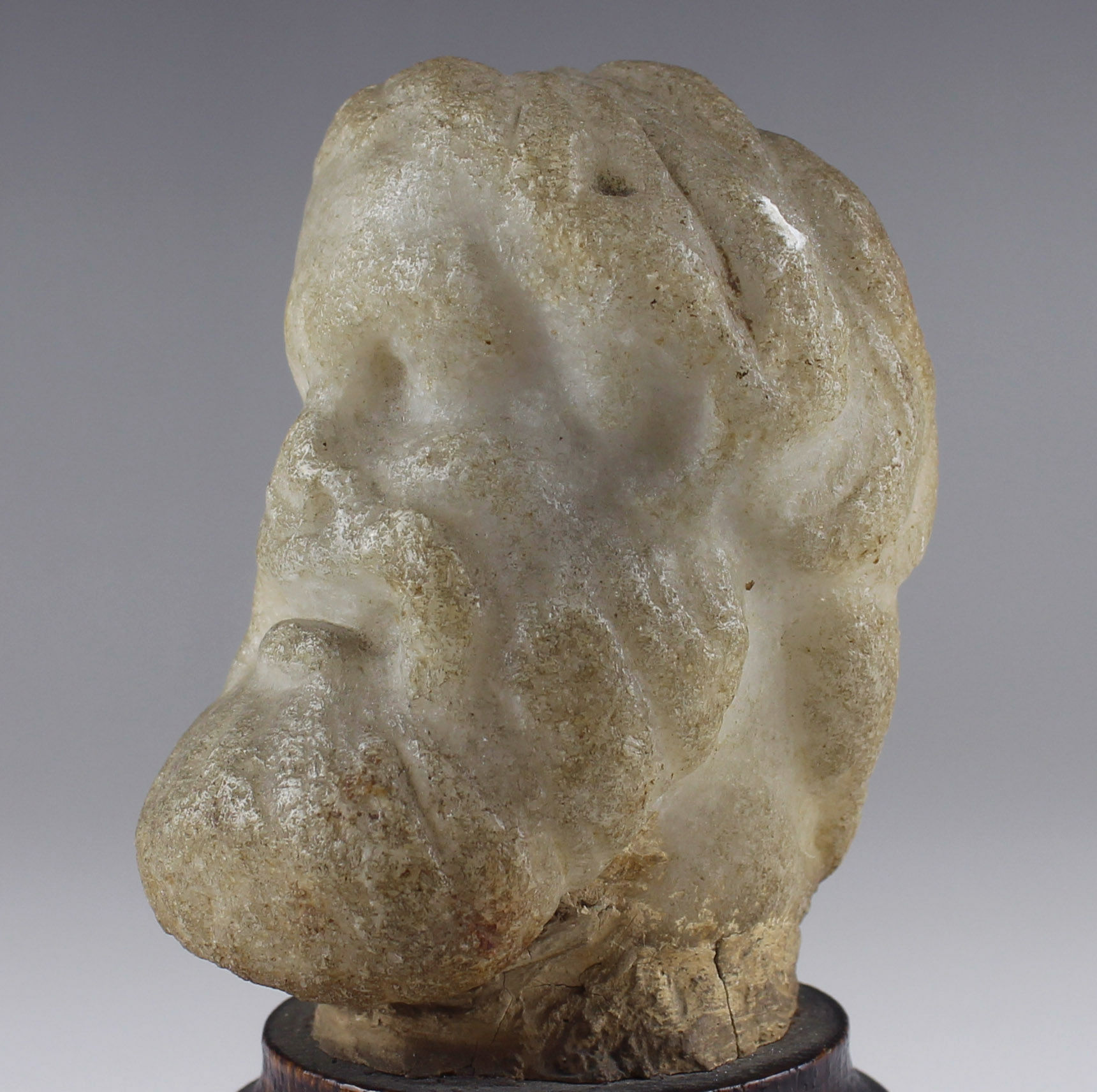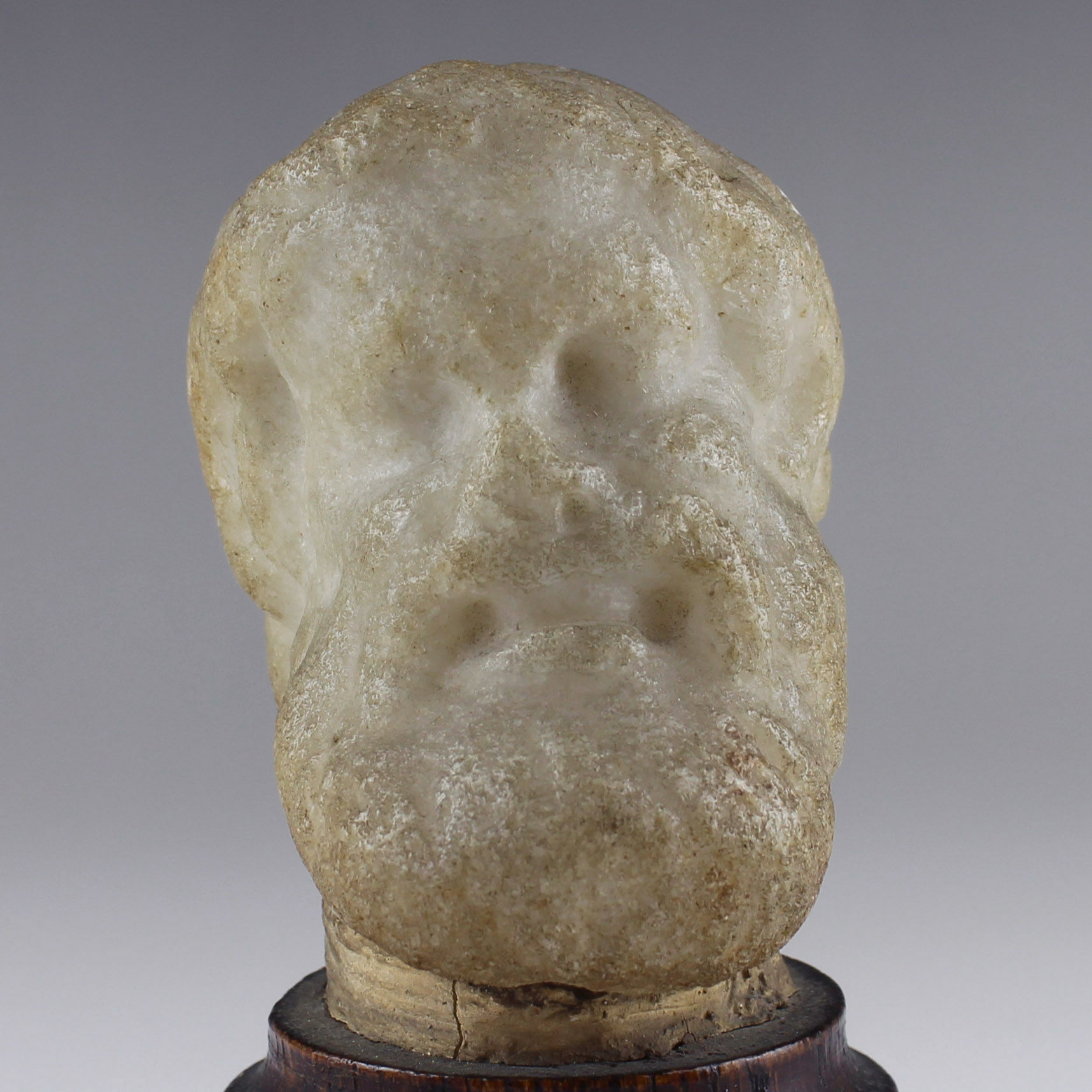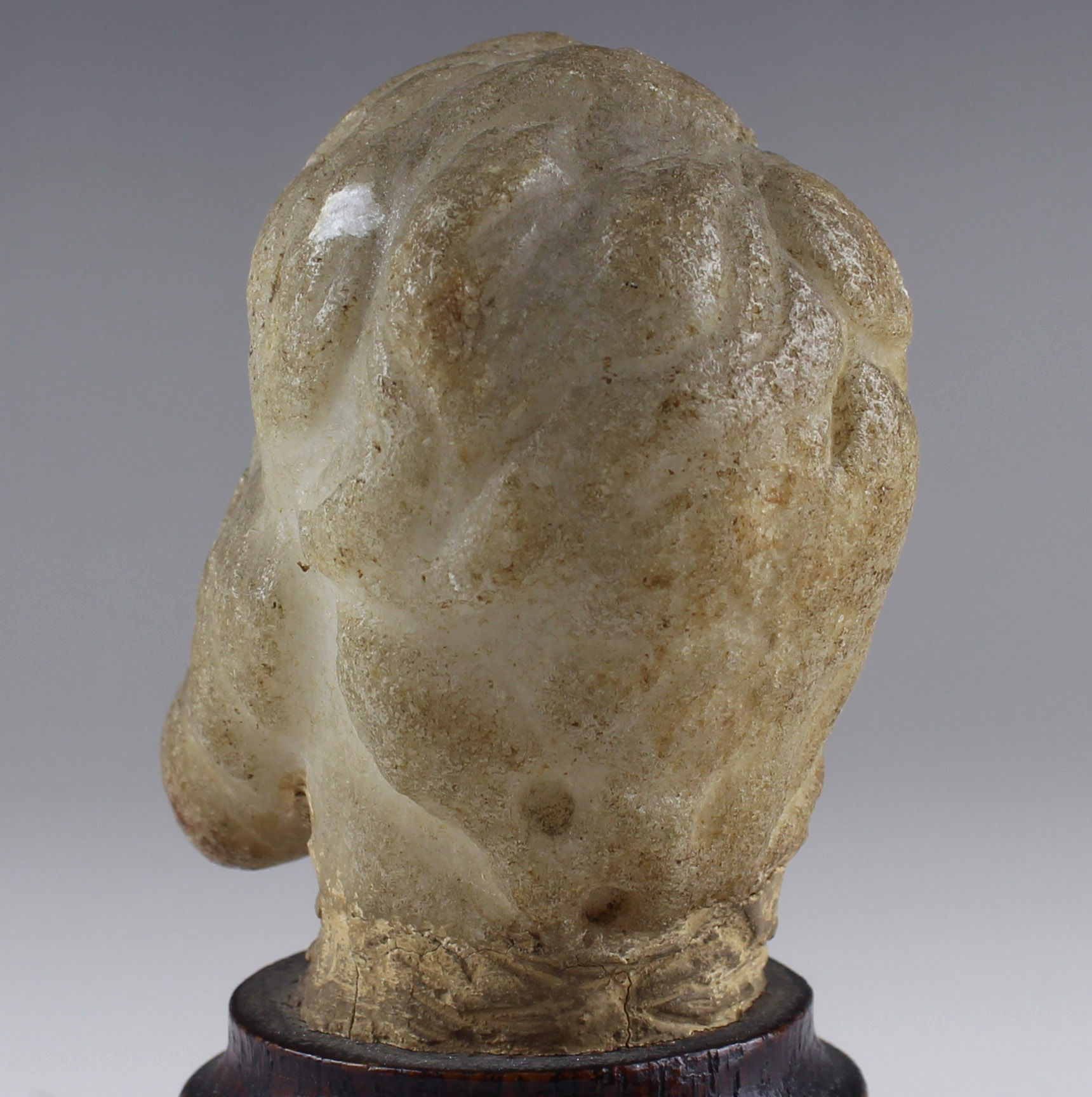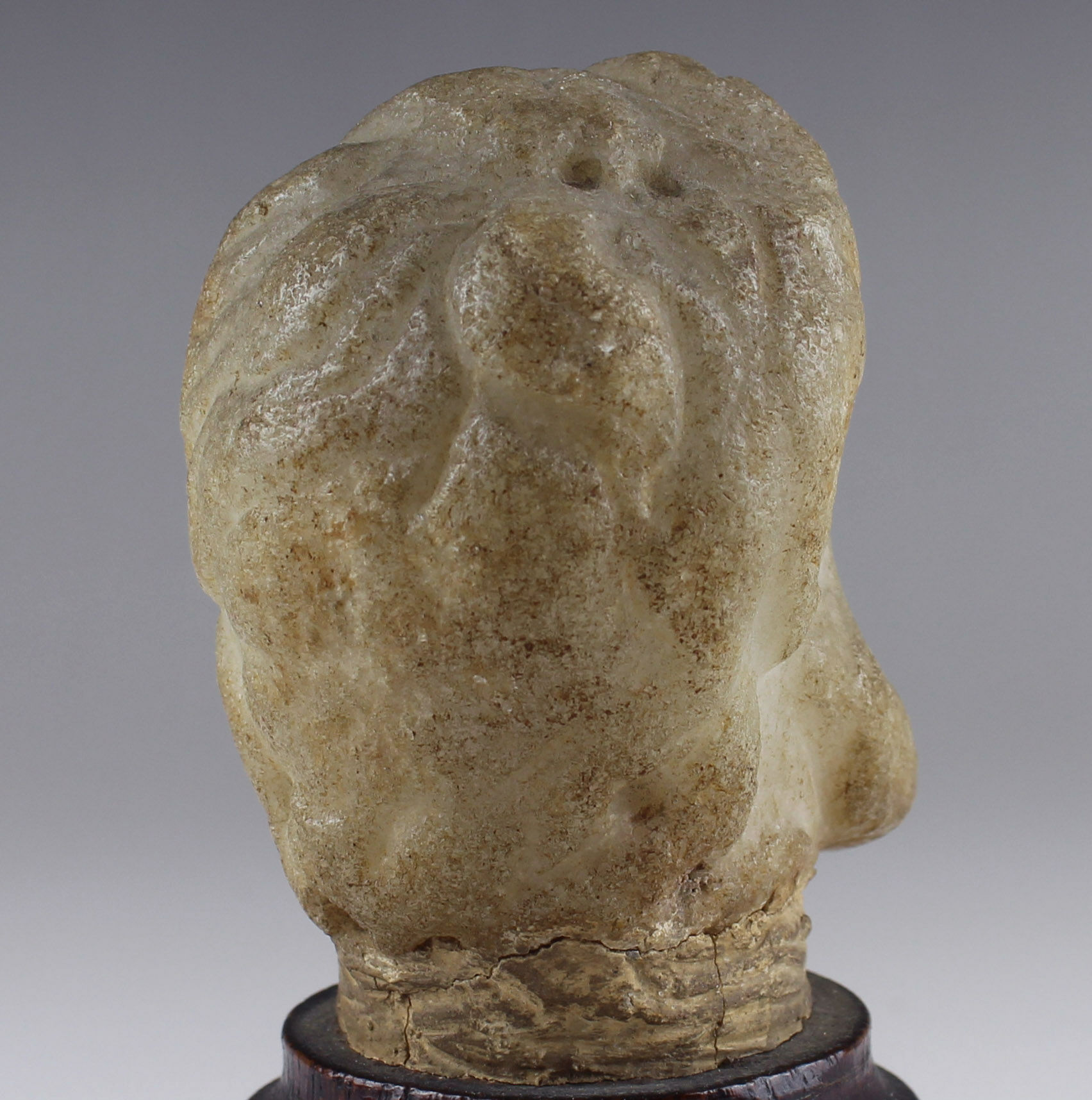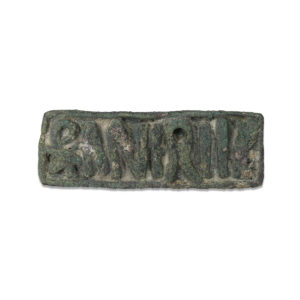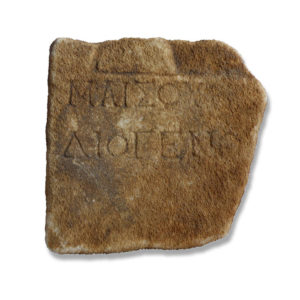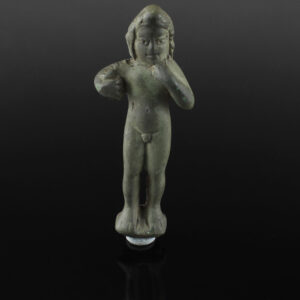Description
| ITEM | Head of Silenus |
| MATERIAL | Marble |
| CULTURE | Roman |
| PERIOD | 1st – 2nd Century A.D |
| DIMENSIONS | 65 mm x 47 mm x 56 mm (without stand) |
| CONDITION | Good condition. Includes stand |
| PROVENANCE | Ex European collection, Mr. L., bought on the French public market in the beginning of the 80’s. |
In Greek mythology, Silenus was a companion and tutor to the wine god Dionysus. He is typically older than the satyrs of the Dionysian retinue (thiasos), and sometimes considerably older, in which case he may be referred to as a Papposilenus. The plural sileni refers to the mythological figure as a type that is sometimes thought to be differentiated from a satyr by having the attributes of a horse rather than a goat, though usage of the two words is not consistent enough to permit a sharp distinction. Silenus presides over other daemones and is related to musical creativity, prophetic ecstasy, drunken joy, drunken dances and gestures.
The original Silenus resembled a folkloric man of the forest, with the ears of a horse and sometimes also the tail and legs of a horse. The later sileni were drunken followers of Dionysus, usually bald and fat with thick lips and squat noses, and having the legs of a human. Later still, the plural “sileni” went out of use and the only references were to one individual named Silenus, the teacher and faithful companion of the wine-god Dionysus.
A notorious consumer of wine, he was usually drunk and had to be supported by satyrs or carried by a donkey. Silenus was described as the oldest, wisest and most drunken of the followers of Dionysus, and was said in Orphic hymns to be the young god’s tutor. This puts him in a company of phallic or half-animal tutors of the gods, a group that includes Priapus, Hermaphroditus, Cedalion and Chiron, but also includes Pallas, the tutor of Athena.
When intoxicated, Silenus was said to possess special knowledge and the power of prophecy. The Phrygian King Midas was eager to learn from Silenus and caught the old man by lacing a fountain with wine from which Silenus often drank. As Silenus fell asleep, the king’s servants seized and took him to their master. An alternative story was that when lost and wandering in Phrygia, Silenus was rescued by peasants and taken to Midas, who treated him kindly. In return for Midas’ hospitality Silenus told him some tales and the king, enchanted by Silenus’ fictions, entertained him for five days and nights. Dionysus offered Midas a reward for his kindness toward Silenus, and Midas chose the power of turning everything he touched into gold. Another story was that Silenus had been captured by two shepherds, and regaled them with wondrous tales.
In Euripides’s satyr play Cyclops, Silenus is stranded with the satyrs in Sicily, where they have been enslaved by the Cyclopes. They are the comic elements of the story, a parody of Homer’s Odyssey IX. Silenus refers to the satyrs as his children during the play.
Silenus may have become a Latin term of abuse around 211 BC, when it is used in Plautus’ Rudens to describe Labrax, a treacherous pimp or leno, as “…a pot-bellied old Silenus, bald head, beefy, bushy eyebrows, scowling, twister, god-forsaken criminal”. In his satire The Caesars, the emperor Julian has Silenus sitting next to the gods to offer up his comments on the various rulers under examination, including Alexander the Great, Julius Caesar, Augustus, Marcus Aurelius (whom he reveres as a fellow philosopher-king), and Constantine I.
Silenus commonly figures in Roman bas-reliefs of the train of Dionysus, a subject for sarcophagi, embodying the transcendent promises of Dionysian cult.


